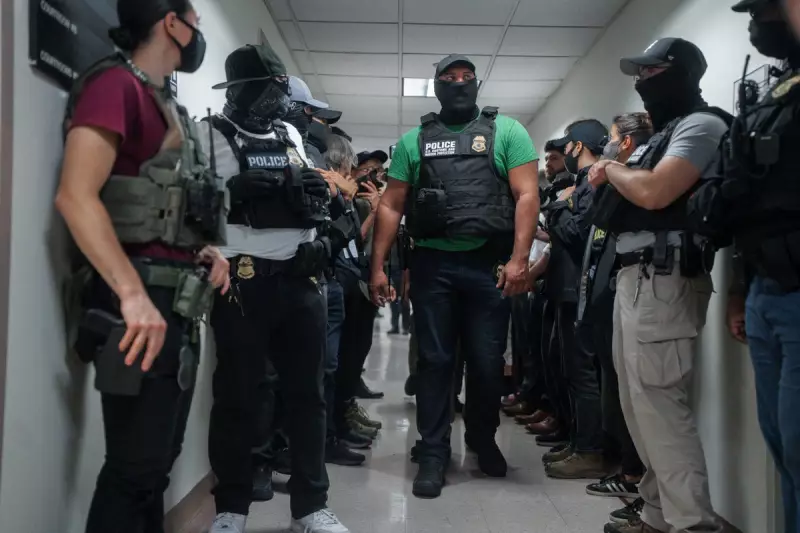
In a significant enforcement operation, US Immigration and Customs Enforcement (ICE) has deported more than 100 migrants to their home countries, including Ecuador, Cuba, Venezuela, and Liberia. The move highlights the Biden administration's continued efforts to manage immigration amid ongoing political and humanitarian debates.
Details of the Deportation Flights
The deportations were carried out via multiple flights organised by ICE, targeting individuals who had either overstayed their visas or entered the country unlawfully. The agency stated that the removals were conducted in compliance with US immigration laws and international agreements.
Reactions and Concerns
Human rights groups have criticised the deportations, arguing that some migrants may face persecution or unsafe conditions upon return. Advocates have called for more transparent and humane immigration policies, particularly for those fleeing political unrest or economic hardship.
Meanwhile, US officials maintain that the deportations are necessary to uphold border security and deter illegal immigration. The operation comes as the Biden administration faces mounting pressure to address migration challenges at the southern border.
Impact on Sending Countries
The return of large numbers of migrants poses logistical and economic challenges for countries like Venezuela and Cuba, which are already grappling with internal crises. Ecuador and Liberia, though less frequently in the spotlight, also face reintegration hurdles for deportees.
As debates over US immigration policy continue, these deportations underscore the complex balance between enforcement and humanitarian considerations.





